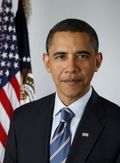
This has given me a unique chance to look at my “profession” from the outside as big things are happening.
What I've seen is a passing of the torch, from the trade to the people. And from the TV to the Internet.
Journalists, those employed by people who buy ink by the barrel, who control satellite transponders or who buy bandwidth by the gigabyte, have largely been Absent With Out Leave (AWOL) on the big stories of the day. Egypt, they got. Everything else, not so much.
It's not all our fault. Journalism, especially TV, is power incarnate. In countries like Libya this means nothing is said unless the regime approves it. In America it means stories are reported as corporate owners demand they be reported.
But that's not always the truth.
For example.

Yet all these stories are being reported, sometimes ably so, because of the medium you're now using. What you see at Twitter's #libya page or its #iran page feels like being in a cocktail party people are constantly rushing into with snippets of news. It's sort of how the British Parliament covered the American Civil War. But it's real.
What you get on those accounts are mainly links to other resources. Live blogs collecting video and text links from elsewhere. YouTube videos of chaos.Rumors, exhortations, misinformation. Not much, I grant you, but a sense of something real happening.
The lesson the rest of the region seemed to get from what happened in Tunisia and Egypt was to cut off communication when the going gets tough, then get tough for real. In fact, it's not working much better than the Giza camel drivers did for Mubarak or the Tunisian police did for Ben Ali. The simple truth is not what we're being told.
Communication is a big factor here. The Internet is a big factor here. But not in the way you presume. It's the normal, day-to-day commerce made possible by mass communication that is driving these protests. Global wealth continues to rise, more and more people are entering the middle class, the Internet drives every economy, and you can't keep people down on the farm after they've seen Paris – even on a tiny telephone screen.
Cut off the Internet and, as I said before, the regime is going on strike. You can't put the genie back in the bottle. You can't pretend nothing happened while the economy went away. A closure is proof of the weakness it's meant to disguise. It emboldens opposition.
Now let's come back home.
Americans are a patient people, even complacent. We have been middle class for generations now. We are powerful, we think ourselves all-powerful. We assume we have a free press.

The story that isn't being told on the TV, about Ohio and Wisconsin and dozens of other places, is that a huge slice of the middle class is threatened with extinction. Teachers and other public employees, the last unionized sector of the economy, is having its rights seized by politicians who, acting in the name of the Tea Party, are going about it in an “all or nothing, once and for all” manner that is as stupid in its way as Ben Ali was in his.
Americans can be a lazy people. Money and comfort make us so. We have, on the whole, had money and feel comfortable. To see that security being taken away, bodily, in order to hand yet-more money over to rich people who act like feudal lords, well it makes you mad.
How mad is yet to be seen.
The demonstrations now taking place in Madison, Wisconsin dwarf those of any Tea Party demonstration in size and scope, yet they're being covered on TV with all the false equivalence corporate-controlled reporters give every other issue – when they're not being paid by Murdoch and saying only what he wants said.
So if we want the story we go online. And not to the major “news” sites, either. Go online right now and you really can get the whole story, if you dig for it. You can learn as much as you want about the issues, the personalities, and the details of the issue involved. And if you take the time, you can get pretty radicalized. It's not a Martin Luther King Jr. moment, but it is a moment of genuine anger, just as genuine as what any Tea Party member has felt.
Anger, opposition and fear are great political motivators. TV and newspaper journalism tries hard to filter that out , to make things seem relatively quiet and rational. On the Internet you can get the whole story, about Wisconsin and other states where Republicans are actively engaged in trying to bust unions and break any force that stands in the way of Koch-style feudalism.
The real lesson of the last two years is that democracy, representative government, requires a process and social contract that respects all sides. It also requires real engagement fr
This, and not the headlines of the moment, is the story of our times. What's interesting is that through all of this turmoil the President's popularity is slowly rising and approval of the man is higher than that for his policies.
The message, to me, is that despite all the noise, the Obama Thesis of Consensus is getting through.
But you won't see that on TV.











“The message, to me, is that despite all the noise, the Obama Thesis of Consensus is getting through.”
Nope. The Americans (you know, the ones born on American soil) made their opinion clear in November.
But sure, Dana, if you need to still believe in our closet muslim In Chief, go ahead. It’s your right in this free country.
By the way, when are you going to drive that hybrid?
“The message, to me, is that despite all the noise, the Obama Thesis of Consensus is getting through.”
Nope. The Americans (you know, the ones born on American soil) made their opinion clear in November.
But sure, Dana, if you need to still believe in our closet muslim In Chief, go ahead. It’s your right in this free country.
By the way, when are you going to drive that hybrid?
Traditional media are also competing with social media for [relevant] content and attention (eyeballs), and traditional media looks and acts tired, saturated with strange “Third Way” talking heads who in no way reflect public opinion. People like Howard Fineman (HuffPost, MSNBC) and Mark Halperin have nothing but “twinkie” analysis to contribute, i.e., it looks like analysis on the outside, but the “people” they’re always referring to are themselves and their friends in the media business! One way to measure this is to note how many times they talk about, reference, and create faux squabbles with each other on TV — Glen Beck said! Chris Matthews spit on…! Jon Stewart offended… and so on.
If you turn the TV off, you’re not going to miss any news. You’ll actually be informed beyond what Newscorp and GE/Comcast want you to think.
Traditional media are also competing with social media for [relevant] content and attention (eyeballs), and traditional media looks and acts tired, saturated with strange “Third Way” talking heads who in no way reflect public opinion. People like Howard Fineman (HuffPost, MSNBC) and Mark Halperin have nothing but “twinkie” analysis to contribute, i.e., it looks like analysis on the outside, but the “people” they’re always referring to are themselves and their friends in the media business! One way to measure this is to note how many times they talk about, reference, and create faux squabbles with each other on TV — Glen Beck said! Chris Matthews spit on…! Jon Stewart offended… and so on.
If you turn the TV off, you’re not going to miss any news. You’ll actually be informed beyond what Newscorp and GE/Comcast want you to think.
Your last paragraph has an extra nugget of a point in it I want to emphasize.
It’s easy to turn off an Internet “channel” — this one included — by simply clicking away. There are literally millions of others to choose from, more than you could ever use, and Google can find them for you easily.
This is not the case with TV. Even cable. There are “only” three news channels, which could be covering any of a number of stories at any one time. If you care about Libya, for instance, you turn on one of these channels and wait to hear something whenever they get to it. Online, you can immerse yourself completely in resources related to the story.
One way I’ve been looking at Libya is through the #libya hashtag on Twitter. People offer links to YouTube videos, to news stories from a variety of sources, to blog posts, to pictures, all sorts of things. And dozens more links come through every minute.
You can say, “but Twitter is just 140 characters.” No, Twitter is a link farm. Offering immediacy and immersion.
Thanks for writing, Zaine.
Your last paragraph has an extra nugget of a point in it I want to emphasize.
It’s easy to turn off an Internet “channel” — this one included — by simply clicking away. There are literally millions of others to choose from, more than you could ever use, and Google can find them for you easily.
This is not the case with TV. Even cable. There are “only” three news channels, which could be covering any of a number of stories at any one time. If you care about Libya, for instance, you turn on one of these channels and wait to hear something whenever they get to it. Online, you can immerse yourself completely in resources related to the story.
One way I’ve been looking at Libya is through the #libya hashtag on Twitter. People offer links to YouTube videos, to news stories from a variety of sources, to blog posts, to pictures, all sorts of things. And dozens more links come through every minute.
You can say, “but Twitter is just 140 characters.” No, Twitter is a link farm. Offering immediacy and immersion.
Thanks for writing, Zaine.